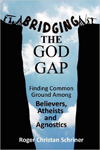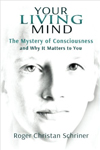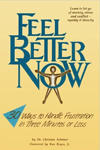As a Unitarian Universalist minister I have noticed a gap in writings about the Christian Bible. It’s easy to find books that assume every word of that book was “written” by God. These publications support the idea of Biblical literalism, also known as inerrancy – there are no errors in the Bible. It’s easy to find other books that disdainfully attack this notion, and deal with Christian scripture disrespectfully. But it is very hard to find a publication that shows why Biblical literalism is false while treating this book, and the Christian tradition, with respect. This is my goal in:
Did God Really Say THAT!? A Blog about the Bible
http://didgodreallysaythat.wordpress.com
I am not currently posting on this site due to busyness with other projects, but the site already contains a lot of material supporting my claim that the Bible should be respected but not worshiped as if every verse reflected the highest spirituality. Here’s a sample post:
Jericho and the Great Flood
The Bible repeatedly claims that God caused the death or injury of thousands of people, including those who had done nothing wrong but were just in the wrong place at the wrong time. I have suggested that rejoicing in such carnage is a human failing rather than an expression of divine wisdom. And it is striking that so many religious people manage to read these passages with an easy conscience.
We humans have a remarkable ability to distance ourselves emotionally from tragedy and cruelty, as long as it’s not happening to anyone we personally care about. I remember singing a jubilant song in Sunday school about Joshua and the battle of Jericho – “and the walls came tumbling down.” I identified with the Hebrew soldiers who gave a mighty shout that pulverized the walls of Jericho. But I did not think about what happened next, as the invaders stabbed and speared the city’s inhabitants.
Here’s another example: In Genesis 7:11-24, God becomes angry about human sinfulness and decides to kill every living thing that walks, runs, or slithers on the Earth, except for Noah’s family and two animals of each species.
As a child, I was captivated by the picturesque imagery of Noah’s ark, with cheerful little beasties marching up the gangplank two by two. Perhaps like me you sang that happy little ditty: “The animals went in two by two, the elephant and the kangaroo.” Catchy songs can make it easier to “heartblink” evil, temporarily immobilizing our own moral instincts.
If I had reflected more deeply I might have considered what it would have been like if my dog had been caught in that flood, bewildered, terrified, struggling to stay afloat through exhausting hours or even days, and finally drowning. I might have imagined that tragic scene being multiplied by millions of living creatures who had done nothing to deserve such a fate. I would have realized that it made no sense to punish animals for human misbehavior and that this passage could not possibly have reflected the will of any God worthy of worship.
Some studies seem to show that as a general rule religion doesn’t make people more moral. Certainly churches try to teach us to be good. But if spiritual communities teach both adults and children to overlook troubling aspects of Bible stories, it is teaching them to dull their own moral faculties.
Churches should urge people to read the Bible with their moral instincts fully functional. If they see something that doesn’t make sense, intellectually or ethically, they should be encouraged to bring it up and talk about it. But that would mean abandoning Biblical literalism, the doctrine that every bit of the Bible is literally true.
It is not literally true that a perfect deity would destroy the innocent with the guilty. Congregations and clergy need to say so, clearly and courageously.
Roger Christan Schriner
If you’d like to read more posts, click:
http://didgodreallysaythat.wordpress.com




